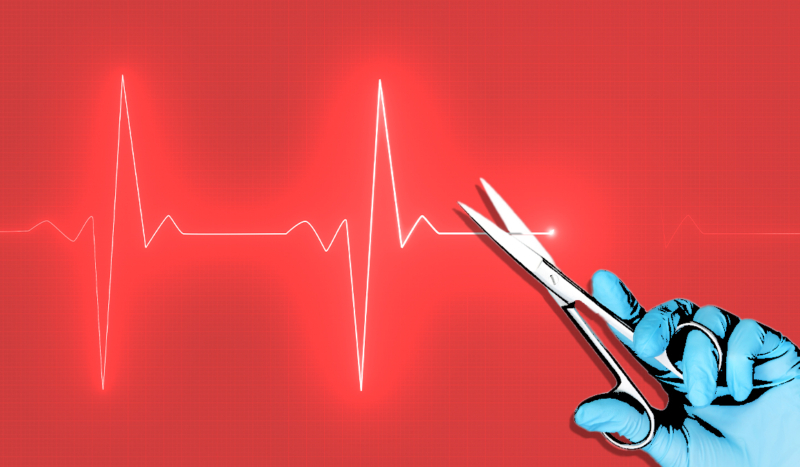
Trigger warning: the following article contains content that may be upsetting to readers.
CV NEWS // A Catholic leader recently criticized Maryland’s proposed pro-assisted suicide legislation and explained why the procedure is an “excruciating” experience that should be opposed.
On January 30 Maryland Catholic bishops stated their strong opposition to the pro-physician-assisted suicide bills that the Maryland General Assembly is currently considering. Hearings for the bills, House Bill 0403 and Senate Bill 0443, are set for February 8 and 16.
As reported by the Baltimore-based Catholic Review, the Maryland Catholic Conference (MCC) is also working against the bills and “plans to submit written testimony stating its opposition to [physician-assisted suicide].”
MCC Executive Director Jenny Kraska is sharing several dangers rooted in the bill. Kraska said that the bills would not only give power to abusers, but also misrepresent assisted-suicide as a peaceful drifting off into sleep. The reality of the process of physician-assisted suicide, she explained, is much worse.
“In an interview with Catholic publications serving Maryland, [Kraska] said the bill does not differ from past years, other than the name of the bill and primary sponsors. The measure has failed in past years, often not getting voted out of committee,” the Catholic Review reported:
[Kraska] noted that proponents of the legislation make it seem as though the patient, after filling a prescription, simply takes a batch of lethal pills and drifts off to sleep.
“They package it as a very nice (way) to say goodbye to everyone, get your last hugs and well wishes and you just sort of fall asleep and don’t wake up. That’s probably the furthest from the truth of what actually happens,” Kraska said.
Kraska has read “stories about people who have undergone” physician-assisted suicide and explained that the process “is much different.”
“The regimen requires opening up about 100 capsules of medicine and mixing the medicine into soft food such as yogurt or oatmeal, all of which must be consumed,” the Catholic Review reported:
Kraska said that sometimes the medication burns the throat as it goes down. It can take “anywhere from hours to days to pass away, and during that time it can be painful; it can be excruciating.”
For those standing by, it can be distressing to watch their loved one have a hard time catching their breath.
The deadly prescription pills also lack disposal regulations, Kraska explained, so family members may be left with remaining pills.
“There’s no disposal method written into the law. There’s no way to track what happens to them,” Kraska said. “It’s ripe for abuse.”
In the Maryland bishops’ January 30 statement, they echoed Kraska’s concerns, stating that the bills are
woefully lacking in the types of meaningful safeguards that would prevent this unnecessary and drastic option. Such safeguards include mandated mental health assessments, reporting requirements, safe disposal of unused medication or prohibitions against expansion of this program.
The Catholic Review reported that Kraska hopes to see state bills introduced that would help ensure patients receive the ethical palliative or hospice care they need.
Kraska said that although palliative and hospice care are not the same, both “are about providing quality care at the end of life, whether the prognosis is six weeks, six months or six years,” the Catholic Review wrote.
“The Maryland Catholic Conference is working again with a coalition, Maryland Against Physician-Assisted Suicide, which expects to provide testimony at upcoming hearings,” the Catholic Review reported. “Kraska said the voices that resonate best in these hearings are those of the medical community and disabilities rights community.”
The Maryland Catholic bishops urged all people of good will to oppose the bills. In their January 30 statement they stressed that “it is incumbent upon each of us to ensure that those at the end of their lives can experience a death that doesn’t include offering a form of suicide prescribed by a doctor.”

